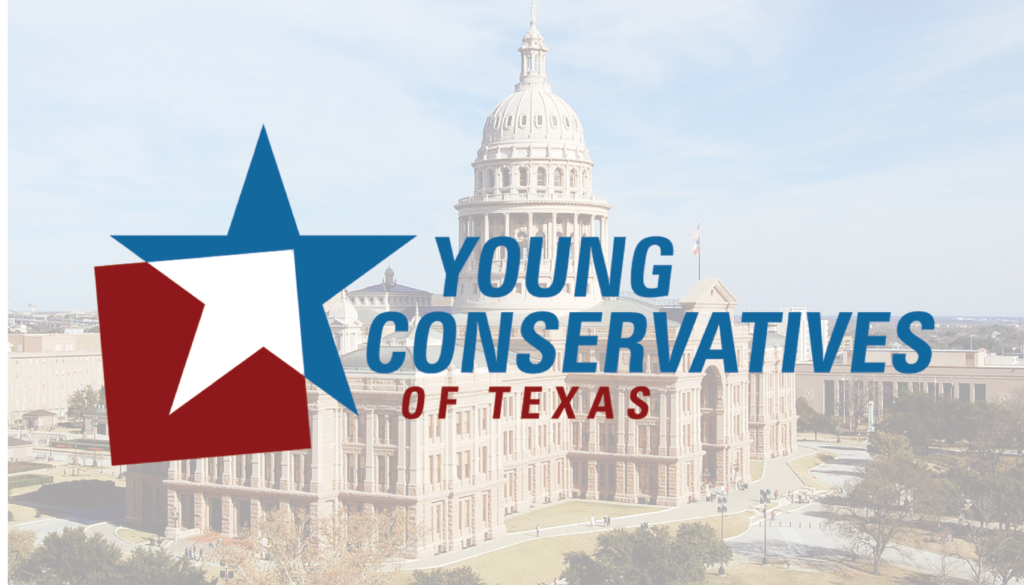Lillian Bonin: Fighting for Culture Change at the University of Texas
School: University of Texas
- “You can’t force people to care about free speech rights; they have to WANT change. That comes from activism, principled conversations, and a dedication to explain WHY students should value speech.”
- “I’ve had some professors that were openly hostile and made a point of disrespecting views they disagreed with― even when not related to the course’s subject matter.”
- “You are your own best advocate and no one on campus is going to honestly tell you the truest and most expansive version of your rights―so be able to defend and explain yourself.”

Q: Tell us about your work with Young Conservatives of Texas (YCT) and how the group has been received on campus. How did you promote your cause to the student body?
A: My work with YCT over the past four years has taken on SO many different forms― from activism and community engagement to fundraising and working together with other conservative and issue-oriented organizations. On campus though, our work primarily involved recruitment and outreach to the general student population, organizing bi-monthly meetings and speakers, bringing larger keynote speakers to campus, and everyone’s favorite, LOTS of campus activism.
We experienced a lot of pushback from students who disagreed with our political beliefs. Each time we hosted an event outside or brought a conservative speaker to campus, protestors would heckle us as we walked by. They would even take pictures and try to film us to be used in doxxings later. But we found that the more visible we made ourselves, the less people felt the urge to react violently or negatively. We were sending a message that we wouldn’t be dissuaded by their antics. This is a perfect example of how powerful it can be to normalize the action of free speech on campus! Being an active part of the student community―rather than succumbing to the role of conservative “outsider”― was the best way to promote our cause to a broad base and bring in others to get involved.

Q: In your opinion and experience, are all ideas and viewpoints treated with equal respect and merit in the classroom by students and professors? Are any specific ideologies given more credence?
A: This varies by each individual educator and his personal teaching style. I’ve had some professors that were openly hostile and made a point of disrespecting views they disagreed with― even when not related to the course’s subject matter. This reaction was met with broad discomfort among my peers. You could feel the awkwardness in the classroom when a professor would go on a political rant. But other professors made a point of stating they wanted to foster an environment of open dialogue and actively preferred student comments that challenged their own for the sake of learning. The latter of course made for a significantly better and more enriching academic experience for everyone in the room.
Q: You served on student government at the University of Texas. Did you find your fellow representatives to be advocates for free speech? What about the faculty advisors?
A: In a way, yes, my colleagues on UT Student Government were supportive of free speech; we just had some differing opinions on what exactly constituted free speech and what protecting it looked like. There was a lot of talk about hate speech on campus (particularly following a YCT activism event on campus) and some students wanted to impose speech restrictions. But because we shared a common understanding of the importance of free speech, that allowed us to have deeper and more substantive discussions that ended up being very productive!
Toward the end of my term in SG, I was able to pass a resolution (nearly unanimously!) urging UT to adopt the speech principles in the popularized University of Chicago Statement. I am very proud of this achievement because it demonstrated how Student Government could work together in support of free speech. Lots of college students value free speech on some level and finding that initial common ground is crucial in making meaningful cultural change in how free speech is viewed by the student body (which I believe is far more influential than written policy anyways).
Q: You also hope to attend law school one day. In your opinion, have campus free speech laws in the states helped prevent the violation of students’ First Amendment rights? Are they really necessary?
A: From what I’ve seen, changes in free speech policy and how free speech is viewed on campus have to come from the student body itself, and then followed by genuine interest from campus administrators. At the end of the day, you can’t force people to care about free speech rights; they have to WANT change. That comes from activism, principled conversations, and a dedication to explain WHY students should value speech- not just because a state legislature told them to. Legally, and when it comes to actual cases, of course state legislation outlining certain rights makes a difference and we should continue working toward passing campus free speech laws for that reason. But authentic change comes from fundamentally changing campus culture.
Q: What advice do you have for students who feel silenced on campus because of their political or ideological opinions?
A: The best advice I have for students facing backlash on campus is just to keep going and keep speaking your mind. I have been doxxed many times, threatened, actually physically attacked, and had all kinds of things said (and yelled) about me. But I didn’t retreat― I would go back out there on campus for tabling and activism events in a heartbeat. Don’t back down and never give the Left that kind of power over you. Because what I ultimately discovered is that if you are conducting yourself in a respectful, responsible, and defensible way, nothing written in an Antifa blog can really touch you. Regarding how to deal with university administrators, I would say remain respectful of them and don’t be overly obtuse just for the sake of it (because what points does that really earn you?).
But never give an inch and never back down where you know you have a right to do something. To that point, know your rights under federal law, state law, and university policy. You are your own best advocate and no one at the school is going to honestly tell you the truest and most expansive version of your rights so be able to defend and explain yourself. Always know exactly where you stand in relation to all of these rules/laws. Make it clear to the university that you want to be a cooperative member of the campus community but you aren’t going to let them mess with you and that you know what your rights are even if they don’t want you to.
You can catch Lily on Instagram (IG TV) each Friday for a summer interview series that features college students and recent graduates’ personal experiences and perspectives on campus free speech. Follow us at speech_first for more information.
